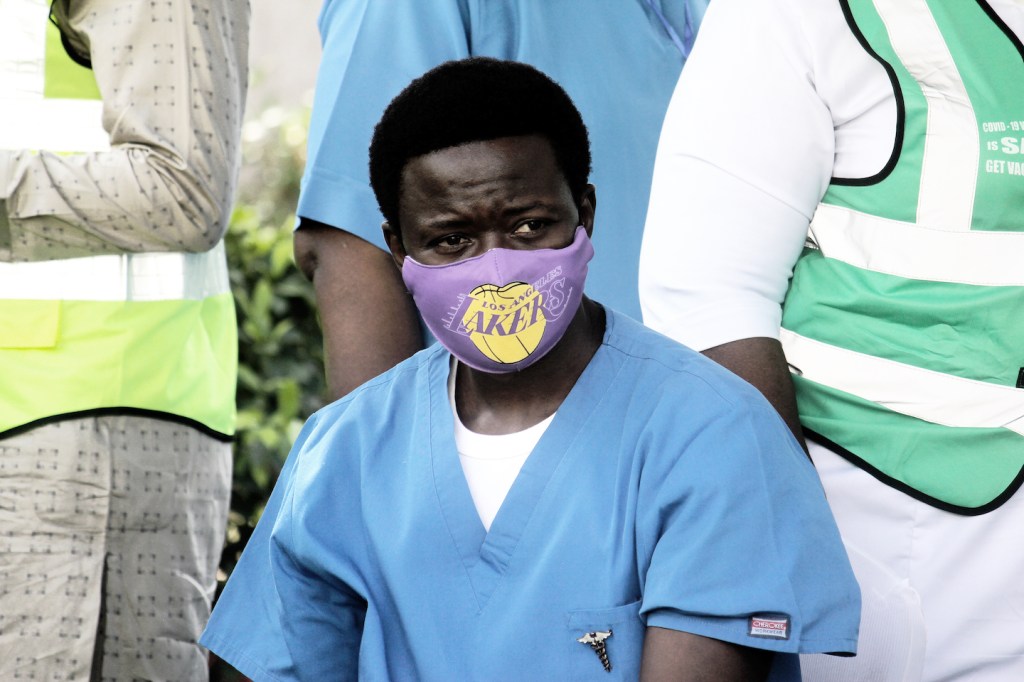Stashed away somewhere in Lagos is a lonely piece of bitcoin software. Running on a server in a data center in the Nigerian capital, it’s the only reachable bitcoin node of its type not just in the country, but in almost all of West and Central Africa, without a companion for thousands of miles in every direction.

Image: Tim Akinbo
The node in Lagos is owned and run by 35 year old software developer Tim Akinbo, who said that his interest in bitcoin stems from gaps in the African financial ecosystem.
Videos by VICE
“Moving money from one country to another in Africa can be very tough,” Akinbo says in a Skype call. “Right now it’s easier for you to send money to the US than it is to send it to another African country. I saw bitcoin as a technology that could really change that.”
Bitcoin nodes are fundamental to keeping the bitcoin network functioning: each of them is a physical or virtual machine (a self-contained computer operating system deployed alongside other programmes on a more powerful piece of hardware) running the bitcoin software in conjunction with a stored copy of the blockchain, constantly synced between them in order to maintain a decentralized database of transactions. But though the network may not have a center, certain areas still have a far greater node density: as the below chart from bitcoin mapping site bitnodes.21.co shows, North America and Western Europe have a high concentration, whereas most of Asia, Africa and South America have only a small scattering.

Global distribution of bitcoin nodes as shown by bitnodes.21.co
Akinbo chose to run his own node to learn about the workings of the cryptocurrency in depth and contribute to the strength of the network as a whole. For reasons of price and practicality most Nigerians are unlikely to choose this option – Akinbo’s server costs are 10,000 Naira per month ($32) in a country where GDP per capita is only around $3000 – but nonetheless, it’s part of a growing interest in bitcoin in the country overall.
“Last year we had an explosion in the use of bitcoin in Nigeria,” Akinbo says. “At the end of the year I got a call from my dad asking where he could buy bitcoin from! That’s when I knew it was reaching the mainstream.”
A number of factors combined in 2016 to spark this uptake: a devaluation of the Naira against the dollar, rampant inflation, and a proliferation of investment schemes that encouraged people to buy cryptocurrency (to the point the Nigerian Securities and Exchange Commission is now actively warning against them.)
Meanwhile, African banks have also been looking to fintech startups to help them harness the power of bitcoin, hoping to regain some of the market share that has been lost to telecoms providers in the money transmission sector.
Whatever the reasons, many Nigerians decided to start learning more about the cryptocurrency, and listings on the localbitcoins site now show a healthy number of buy and sell offers in Nigeria.

Nigerian listings on localbitcoins.com
Bitcoin’s growing adoption in Nigeria has parallels with the situation in countries like Venezuela, where some citizens have turned to bitcoin as an alternative means of transacting online in the face of massive inflation and perceived financial mismanagement by the government.
If, as in Venezuela, trends in the Nigerian economy continue to make bitcoin investments attractive, Tim Akinbo might not have the only node in West Africa for much longer.




